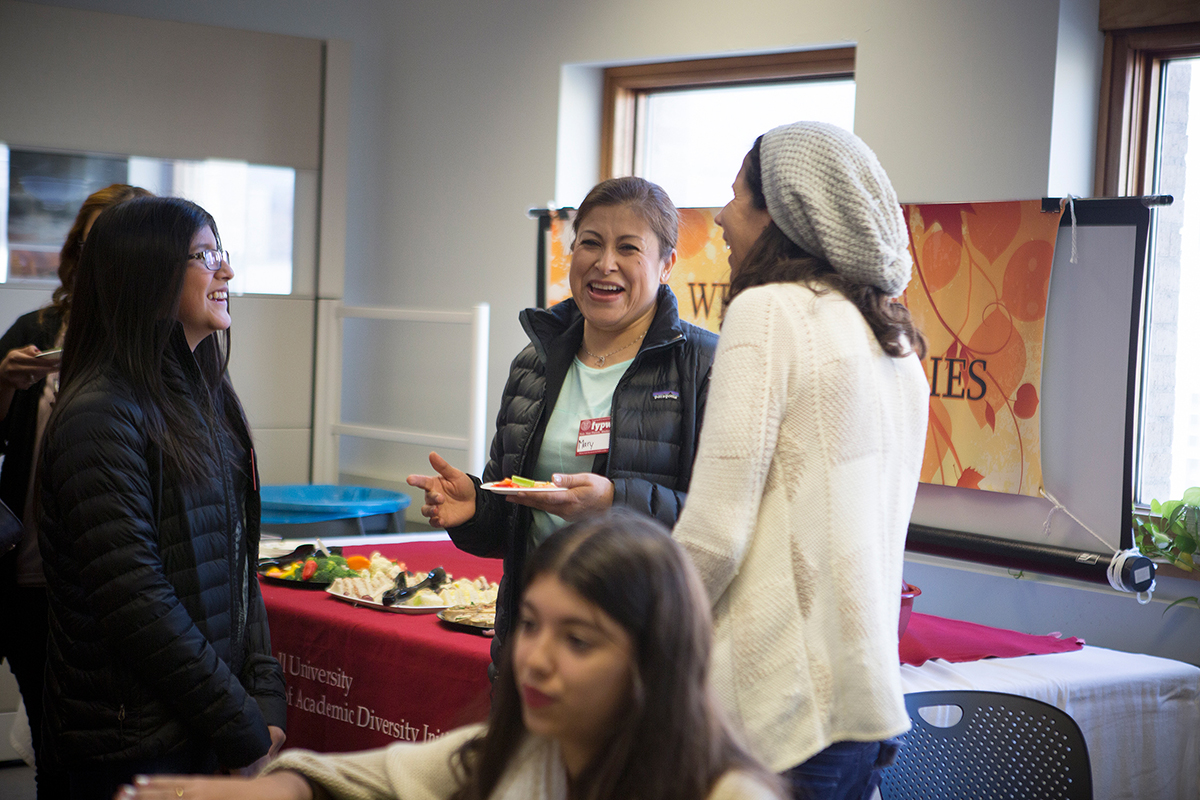Third group of Posse students thriving at Cornell
By Agnes Shin

This semester, the College of Arts and Sciences and the Office of Academic Diversity Initiatives (OADI) welcomed the third cohort of Posse Foundation students to Cornell.
The Posse program is a full-scholarship college access and youth leadership program that brings promising students from urban public schools to top-tier universities.
“Posse is providing him with opportunities and opening a lot of doors,” said Jose Roman of his son Jonathan Roman ‘19.
“He’s getting challenged here, but he’s adjusting well,” Carol Roman said.
Hammond Carter and Joy Walker, parents of Matthew Carter ‘19, said their son has always had lots of family support as the youngest of four brothers, but being a part of Posse meant he never felt alone at Cornell.
“Posse guided us along the way… and took a lot of stress off of him and us,” Walker said. “We were a lot more comfortable letting him come up here.”
The first group of students came to campus in fall 2013. Students accepted to Cornell’s Posse cohort are admitted to the College of Arts and Sciences, where they pursue a liberal arts education in a variety of majors.
The selection process is demanding: Cornell draws its Posse students from Chicago, and nearly every high school in Chicago nominates at least one candidate for the program, bringing the Chicago cohort pool to around 2,600 students. The Posse Foundation narrows the pool to around 250 students; from that pool, Cornell and 10 other universities then select its “Posse” of 10 students. Candidates for Cornell’s Posse cohort undergo intense exercises and are evaluated on their ability to respond to dynamic situations and evaluated on effective teamwork skills, leadership skills and resilience.
Posse member Carter is a chemistry major on the pre-med track: “I work smarter under pressure,” he says. “And saving someone’s life is the highest form of helping people.” Carter is also an athlete on the varsity track team – a 400-meter runner and hurdler who ran cross country all four years in high school.
Roman says he was first drawn to Cornell because of the China and Asia Pacific Studies major, having taken Chinese for all four years in high school. Right now, he’s considering majoring in the biological sciences or economics and is a member of Movimiento Estudiantil Chicano de Aztlán, an organization that promotes awareness of issues faced by the Latino population and creates a sense of community for Cornell Chicanos, as well as Cru, a Christian fellowship group.
The reasoning behind creating “Posse” cohorts comes from the idea that students who arrive on campus as part of a group perform better. Posse 3 scholars meet weekly with each other, and studies have shown that students with strong support communities have higher rates of success.
“It’s intimidating going to college when you don’t know anybody,” Roman says, “but it was helpful coming to Cornell with a group.”
In addition to the support of their cohort, Posse Scholars also receive support through the Posse program itself. After being accepted into the program in December, scholars undergo “pre-collegiate training” for eight months, attending career workshops, writing workshops, team-building activities and discussions.
“It helped us become closer as a group and made us think about the issues we would face at Cornell,” says Roman.
Carter said the training taught him how to ask for help. “My biggest weakness is that I don’t ask for help,” he said, “but I learned to acknowledge that I can’t do everything alone and that I need help from others.”
He said the writing workshops during the pre-collegiate training were valuable. “I’d never written a research paper before, and the writing seminar helped me understand the process of writing a paper, through a step-by-step process.”
Scholars are also assigned a career adviser, a resume adviser and a faculty mentor to answer career, academic or life questions.
Ultimately, the Posse concept envisions not only the success of Posse students but also the impact they will have on the communities where they live. The university, its students and its faculty benefit from the varied backgrounds, skills and interests of Posse students; at Cornell, more than 70 percent of Posse scholars have taken on leadership positions.
Gabriela Zamora ’17, a member of Cornell’s first Posse cohort, is the president of STEP Up, an organization that mentors Ithaca elementary school students in STEM fields. Anthony Halmon ’17, also a member of that cohort, is a mentor for SWAG (Scholars Working Ambitiously to Graduate), an organization that seeks to increase retention and graduation rates among black men at Cornell, and Mary Khalaf ’17, a residence adviser for the past two years in Mary Donlan Hall, is active in wellness projects.
Media Contact
Get Cornell news delivered right to your inbox.
Subscribe